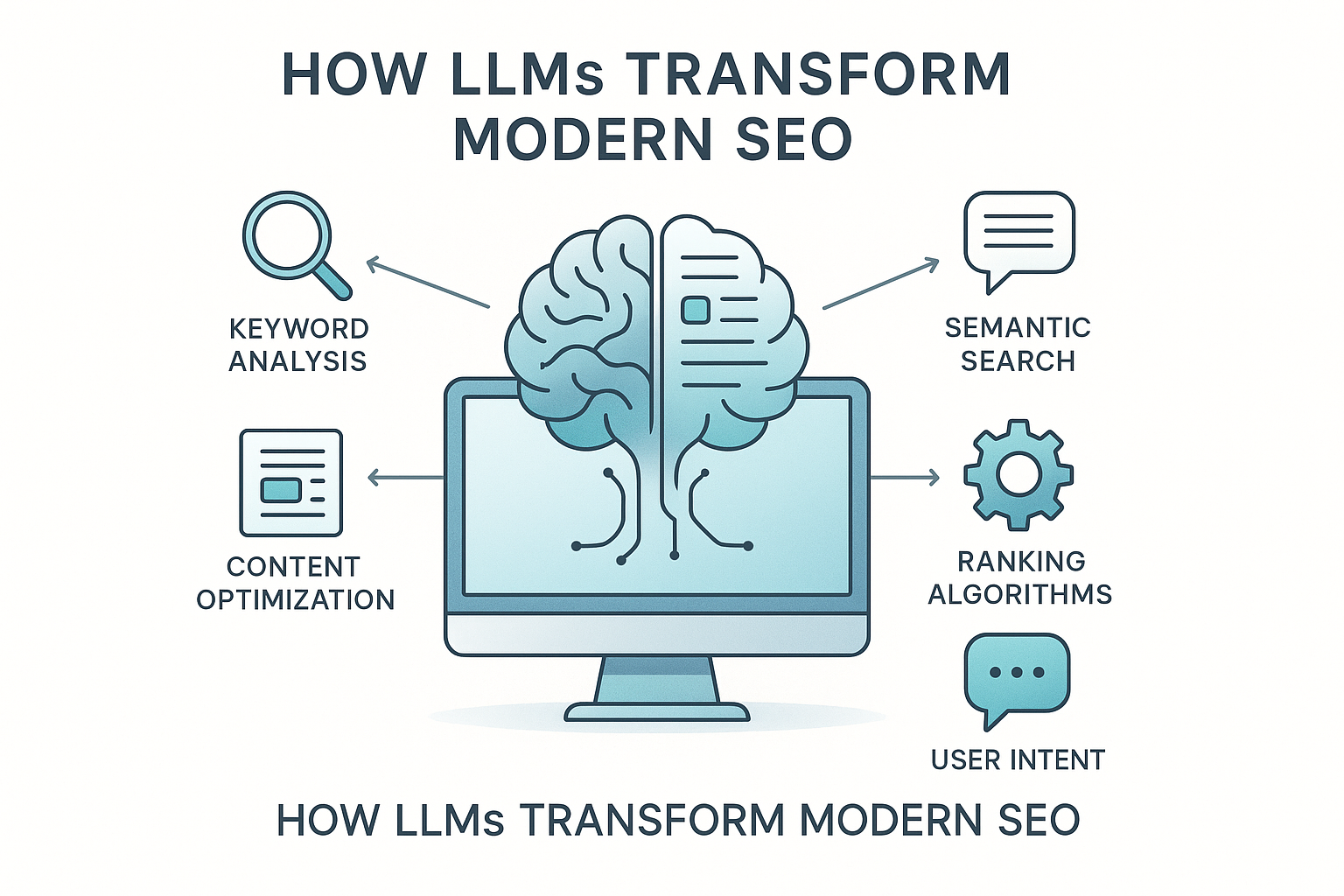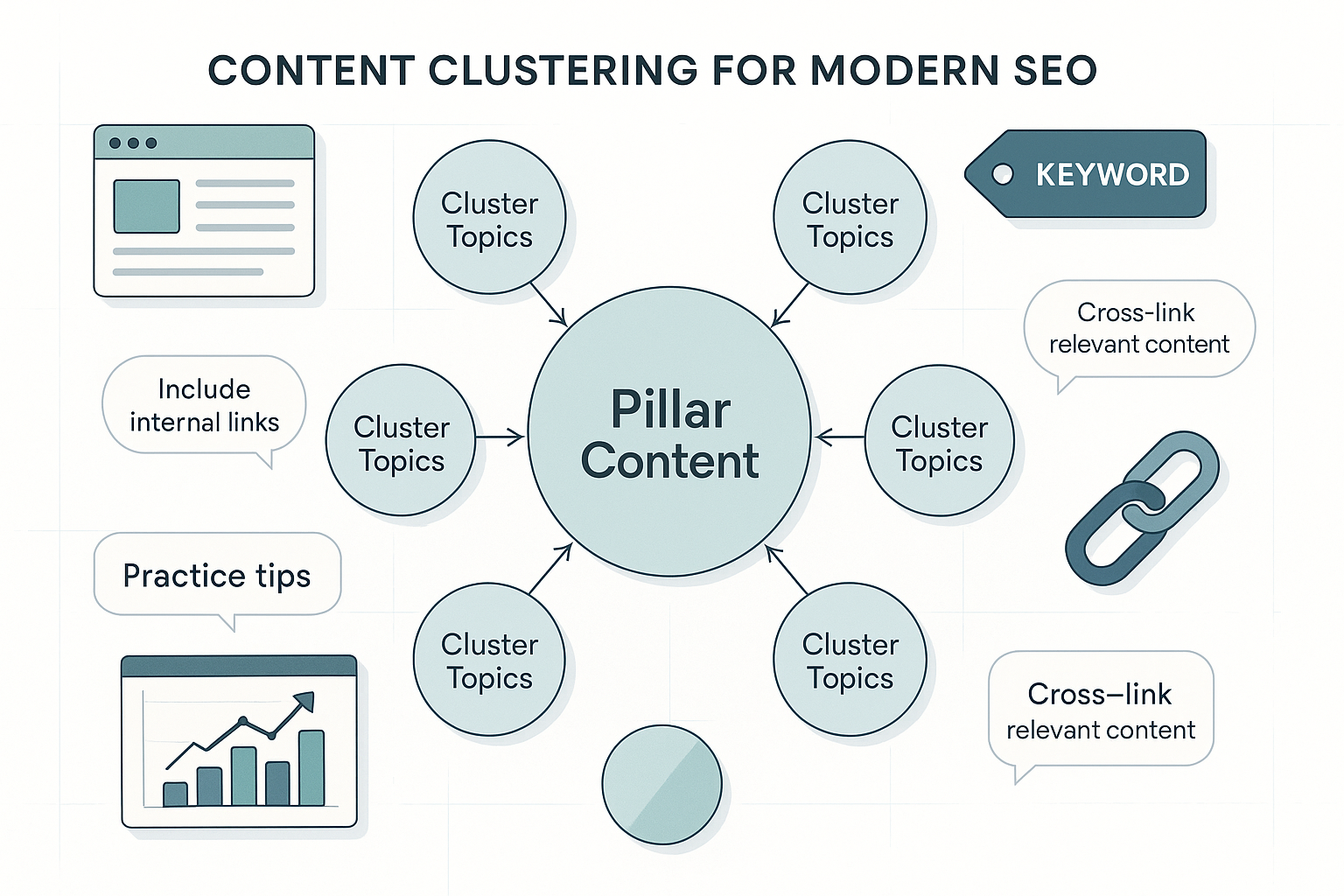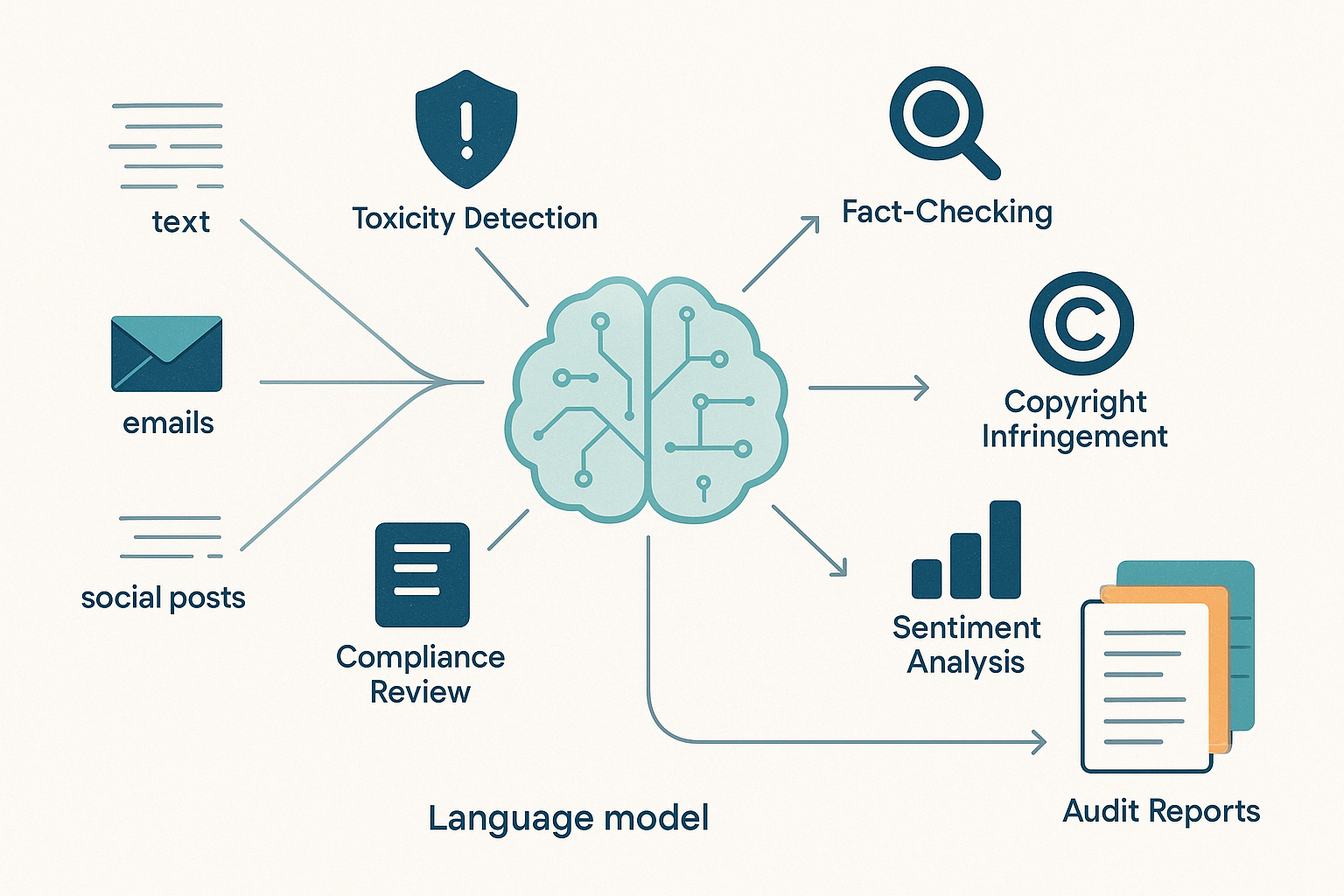Advanced on page SEO made simple.
Powered by POP Rank Engine™
Includes AI Writer
7-day refund guarantee
In the ever-evolving world of SEO, a new player has entered the game: Artificial Intelligence. As AI tools become more sophisticated, marketers and content creators are left wondering: "How much AI content is acceptable in SEO?" It's a question that's sparking debates and reshaping content marketing strategies across the business landscape.
The truth is, there's no one-size-fits-all answer. Google's algorithm is constantly evolving, and while AI-generated content will not impact search rankings directly, the key lies in the quality and relevance of your content. Whether it's human-generated content or AI-generated, what matters most is how well it serves your audience.
Consider this:
- AI can help you create content faster and more efficiently
- Human oversight remains important for maintaining brand voice and accuracy
- The focus should always be on producing relevant content that provides value
As we dive deeper into this topic, we'll explore the pros and cons of AI-generated content, examine Google's stance on the matter, and provide important updates on how to strike the right balance. Whether you're a seasoned marketing professional or just starting to learn about SEO, this guide will help you navigate the exciting intersection of AI and content creation.
Which is the best LLM for SEO content?
Get the full rankings & analysis from our study of the 10 best LLM for SEO Content Writing in 2026 FREE!

- Get the complete Gsheet report from our study
- Includes ChatGPT, Gemini, DeepSeek, Claude, Perplexity, Llama & more
- Includes ratings for all on-page SEO factors
- See how the LLM you use stacks up
Google's Stance on AI-Generated Content
When it comes to SEO and AI content, many marketers are left wondering, "How much AI content is acceptable in SEO?" The good news is that Google has provided some clarity on this matter. Let's dive into their official position and what it means for your content marketing strategy.
The Official Word from Google
Google's stance is clear: AI-generated content will not impact search rankings directly. Instead, they focus on the quality and relevance of the content, regardless of how it's created. This means that whether your content is human-generated or AI-generated, what matters most is its value to the reader.
E-E-A-T Guidelines and AI Content
Google's E-E-A-T guidelines (Experience, Expertise, Authoritativeness, and Trustworthiness) remain crucial. Here's how AI content fits into this framework:
- Experience: AI can provide data-driven insights, but human experiences add depth.
- Expertise: AI can compile information, but human experts provide nuanced understanding.
- Authoritativeness: Combining AI research with human expertise can enhance authority.
- Trustworthiness: Human oversight ensures AI-generated content aligns with brand values.
The Importance of Content Quality
While there is no set rule on how much AI content is acceptable, the focus should always be on content quality. Google's algorithm is designed to reward relevant content that provides value to users. This means:
- Ensuring accuracy of information
- Providing unique insights
- Maintaining a consistent brand voice
- Addressing user intent effectively
Remember, AI tools are just that – tools. They can help you create content more efficiently, but the final product should always meet high-quality standards. By focusing on producing valuable, informative content, you're more likely to see positive results in your search rankings.
In the next section, we'll explore the benefits and limitations of using AI in your SEO strategy, helping you find the right balance for your business.
The Benefits and Limitations of AI Content for SEO
As we delve deeper into the question of "How much AI content is acceptable in SEO?", it's crucial to understand both the advantages and drawbacks of using AI-generated content in your marketing strategy. Let's break it down:
Advantages of AI in Content Creation
- Speed and Efficiency: AI tools can produce content at a pace that far outstrips human writers, allowing businesses to create content at scale.
- Consistency: AI can maintain a consistent tone and style across large volumes of content, which is crucial for brand identity.
- Data-Driven Insights: Artificial intelligence can analyze vast amounts of data to identify trending topics and relevant content ideas.
- Cost-Effective: For businesses on a tight budget, AI can provide a cost-effective solution to produce large amounts of content.
Limitations of AI-Generated Content
- Lack of Originality: While AI can compile information, it struggles to generate truly original ideas or perspectives.
- Potential Inaccuracies: AI can sometimes produce factual errors or outdated information, requiring careful human review.
- Missing Human Touch: AI-generated content often lacks the emotional depth and personal anecdotes that make content relatable.
- SEO Risks: Overuse of AI content could potentially trigger Google spam filters if not properly optimized and reviewed.
Finding the Right Balance
The key to successful AI content SEO lies in striking the right balance. Here's a simple table to help you understand when to use AI and when to rely on human expertise:

Remember, while AI-generated content will not impact search rankings directly, the quality and relevance of your content certainly will. The goal is to use AI as a tool to enhance your content creation process, not replace the human element entirely.
By leveraging the strengths of both AI and human creativity, you can create a powerful content marketing strategy that drives results and improves your search rankings. In the next section, we'll explore practical ways to implement this balanced approach in your SEO efforts.
Which is the best LLM for SEO content?
Get the full rankings & analysis from our study of the 10 best LLM for SEO Content Writing in 2026 FREE!

- Get the complete Gsheet report from our study
- Includes ChatGPT, Gemini, DeepSeek, Claude, Perplexity, Llama & more
- Includes ratings for all on-page SEO factors
- See how the LLM you use stacks up
Finding the Right Balance: How Much AI is Acceptable?
When it comes to SEO and content creation, the question on everyone's mind is, "How much AI content is acceptable in SEO?" While there is no set rule on how much AI-generated content you should use, finding the right balance is crucial for success. Let's explore how to combine AI and human expertise effectively.
The Hybrid Approach: Marrying AI and Human Creativity
The key to successful AI content SEO lies in adopting a hybrid approach. Here's how you can make it work:
- Use AI for Research and Outlines:some text
- Leverage AI tools to gather data and generate initial content structures.
- Use this as a foundation for your human-generated content.
- Human Oversight and Editing:some text
- Always have a human editor review and refine AI-generated content.
- Ensure the content aligns with your brand voice and messaging.
- Fact-Checking and Adding Original Insights:some text
- Verify all information provided by AI for accuracy.
- Infuse content with unique perspectives and relevant industry insights.
Guidelines for Using AI in Content Creation
To maintain content quality and avoid Google spam flags, follow these guidelines:

Remember, while AI-generated content will not impact search rankings directly, the quality and relevance of your content certainly will. The goal is to use AI as a tool to enhance your content marketing strategy, not replace human creativity entirely.
The Importance of Transparency
Be open about your use of AI in content creation. This transparency can:
- Build trust with your audience
- Demonstrate your commitment to innovation
- Showcase your responsible use of technology
Striking the Right Balance
Finding the perfect mix of AI and human input may take some experimentation. Here are some tips:
- Start small: Begin by using AI for simple tasks like headline generation or topic research.
- Monitor performance: Keep a close eye on your content ranking and engagement metrics.
- Continuously refine: Based on results, adjust your AI-to-human ratio as needed.
- Stay updated: Keep abreast of Google algorithm updates and adjust your strategy accordingly.
By thoughtfully integrating AI tools into your content creation process, you can enhance efficiency without sacrificing quality. The key is to view AI as a powerful assistant, not a replacement for human creativity and expertise. In the next section, we'll dive into specific best practices for implementing AI in your SEO strategy.
Best Practices for Implementing AI in Your SEO Strategy
Now that we've explored the question of "How much AI content is acceptable in SEO?", let's dive into some practical tips for leveraging AI tools in your content marketing strategy.
1. Use AI for Keyword Research and Topic Ideation
AI can be a powerful ally in identifying relevant keywords and content ideas:
- Use AI-powered tools to analyze search trends and competitor content
- Generate lists of long-tail keywords that your human writers can focus on
- Identify content gaps in your niche that you can fill
2. Leverage AI for Content Outlines and Structure
AI can help create solid foundations for your content:
- Generate article outlines based on top-performing content in your niche
- Use AI to suggest headings and subheadings for better content structure
- Create content briefs that your writers can flesh out with original insights
3. Add the Human Touch
While AI-generated content can provide a great starting point, human input is crucial:
- Infuse your brand voice and personality into the content
- Add personal anecdotes and industry-specific insights
- Ensure the content resonates with your target audience
4. Regular Content Audits and Updates
Keep your content fresh and relevant:
- Use AI to identify outdated content that needs refreshing
- Regularly update your content with the latest information and trends
- Monitor your content ranking and adjust your strategy based on performance
Remember, the key to successful AI content SEO is finding the right balance between efficiency and quality. By following these best practices, you can harness the power of AI to enhance your SEO efforts while maintaining the human touch that makes your content unique and engaging.
Conclusion
As we've explored throughout this article, the question of "How much AI content is acceptable in SEO?" doesn't have a one-size-fits-all answer. The key takeaway is that AI-generated content can be a powerful tool in your SEO arsenal when used thoughtfully and in conjunction with human expertise.
Let's recap the main points:
- Google's algorithm focuses on content quality and relevance, not how it's produced
- AI can enhance efficiency in content creation and keyword research
- Human oversight is crucial for maintaining brand voice and adding unique insights
- A balanced approach combining AI and human input yields the best results
Looking to the future, AI will undoubtedly play an increasingly significant role in content marketing. However, the human touch will remain irreplaceable. As technology advances, successful marketers will be those who learn to leverage AI tools effectively while preserving the creativity and emotional intelligence that only humans can provide.
Remember, the goal isn't to replace human writers but to augment their capabilities. By embracing this hybrid approach, you can create high-quality, relevant content that resonates with your audience and boosts your search rankings.
As you move forward, continue to experiment, learn, and adapt your strategy. The world of SEO is ever-evolving, and staying ahead means embracing innovation while staying true to the core principles of creating value for your audience.







